Filter by
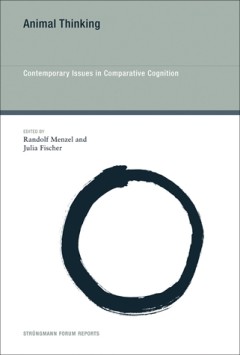
Animal thinking :contemporary issues in comparative cognition
"Eighth Ernst Str?ungmann Forum held Sep. 26-Oct. 1, 2010, Frankfurt am Main.""Do animals have cognitive maps? Do they possess knowledge? Do they plan for the future? Do they understand that others have mental lives of their own? This volume provides a state-of-the-art assessment of animal cognition, with experts from psychology, neuroscience, philosophy, ecology, and evolutionary biology addre…
- Edition
- -
- ISBN/ISSN
- 9780262298988
- Collation
- 1 online resource (xi, 342 pages) :illustrations (some color).
- Series Title
- -
- Call Number
- -

The paradox of self-consciousness
"A Bradford book."In this book, Jose Luis Bermudez addresses two fundamental problems in the philosophy and psychology of self-consciousness: (1) Can we provide a noncircular account of full-fledged self-conscious thought and language in terms of more fundamental capacities? (2) Can we explain how full-fledged self-conscious thought and language can arise in the normal course of human developme…
- Edition
- -
- ISBN/ISSN
- 0585190089
- Collation
- 1 online resource (xiv, 338 pages) :illustrations.
- Series Title
- -
- Call Number
- -
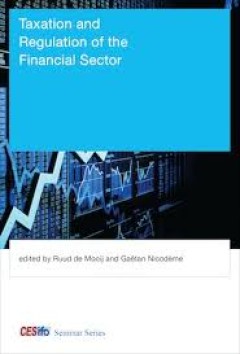
Taxation and Regulation of the Financial Sector
Analytical and empirical perspectives on the interplay of taxation and regulation in the financial sector.OCLC-licensed vendor bibliographic record.
- Edition
- -
- ISBN/ISSN
- 9780262321099
- Collation
- 1 online resource :illustrations.
- Series Title
- -
- Call Number
- -

The bias that divides us :the science and politics of myside thinking
"An examination of a common, but underappreciated cognitive bias that permeates or social and political worlds, written by a leading researcher in the field of rationality"--OCLC-licensed vendor bibliographic record.
- Edition
- -
- ISBN/ISSN
- 0262365243
- Collation
- 1 online resource.
- Series Title
- -
- Call Number
- -
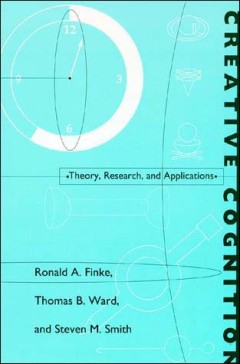
Creative Cognition: Theory, Research, and Applications
"A Bradford book."Creative Cognition combines original experiments with existing work in cognitive psychology to provide the first explicit account of the cognitive processes and structures that contribute to creative thinking and discovery.Creative Cognition combines original experiments with existing work in cognitive psychology to provide the first explicit account of the cognitive processes…
- Edition
- -
- ISBN/ISSN
- 9780262272650
- Collation
- 1 online resource (vii, 239 pages)
- Series Title
- -
- Call Number
- -

European Objects: The Troubled Dreams of Harmonization
How interventions based on objects—including chemicals, financial products, and consumer goods—offer a path to rethink European integration. Interventions based on objects, Brice Laurent claims, have become a dominant path for European policy-making. In European Objects, Laurent analyzes the political consequences of these interventions and their democratization. He uses the term “Euro…
- Edition
- -
- ISBN/ISSN
- 9780262368575
- Collation
- -
- Series Title
- -
- Call Number
- 320.64
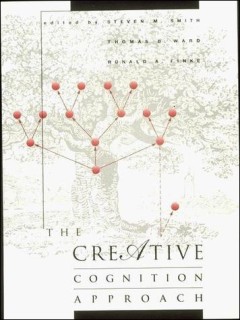
The Creative Cognition Approach
"A Bradford book."Annotation OCLC-licensed vendor bibliographic record.
- Edition
- -
- ISBN/ISSN
- 9780262283892
- Collation
- 1 online resource (viii, 351 pages) :illustrations.
- Series Title
- -
- Call Number
- -
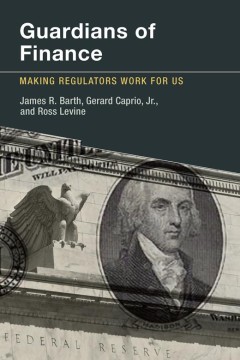
Guardians of finance :making regulators work for us
"The recent financial crisis was an accident, a 'perfect storm' fueled by an unforeseeable confluence of events that unfortunately combined to bring down the global financial systems. And policy makers? They did everything they could, given their limited authority. It was all a terrible, unavoidable accident. Or at least this is the story told and retold by a chorus of luminaries that includes …
- Edition
- -
- ISBN/ISSN
- 9780262301527
- Collation
- 1 online resource (xiii, 280 pages)
- Series Title
- -
- Call Number
- -

Interconnecting the network of networks
This book describes the transformation of telecommunications from national network monopolies to a new system, the "network of networks," and the glue that holds it together, interconnection. By their very nature, monopoly-owned networks provided a small number of standardized, nationwide services. Over the past two decades, however, new forces in the world economy began to unravel this traditi…
- Edition
- -
- ISBN/ISSN
- 9780262280693
- Collation
- 1 online resource (ix, 318 pages) :i llustrations
- Series Title
- -
- Call Number
- 005 NOA i
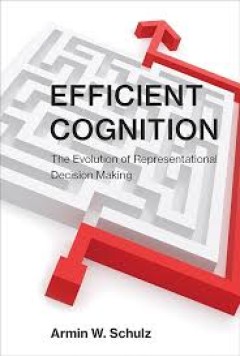
Efficient cognition :the evolution of representational decision making
An argument that representational decision making is more cognitively efficient, allowing an organism to adjust more easily to changes in the environment.OCLC-licensed vendor bibliographic record.
- Edition
- -
- ISBN/ISSN
- 9780262345262
- Collation
- 1 online resource
- Series Title
- -
- Call Number
- -
 Computer Science, Information & General Works
Computer Science, Information & General Works  Philosophy & Psychology
Philosophy & Psychology  Religion
Religion  Social Sciences
Social Sciences  Language
Language  Pure Science
Pure Science  Applied Sciences
Applied Sciences  Art & Recreation
Art & Recreation  Literature
Literature  History & Geography
History & Geography